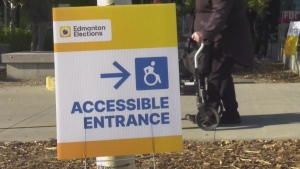Alberta’s new voter ID restrictions have sparked controversy and concern among political experts. According to a recent article by CTV News, these restrictions have been deemed a threat to core democratic values by political scientist, Dr. Lisa Young.
In an interview with CTV News, Dr. Young expressed her concerns about the potential impact of these restrictions on the democratic process. She stated that these restrictions could potentially disenfranchise certain groups of voters, particularly those who may have difficulty obtaining the required forms of identification.
Dr. Young also highlighted the fact that these restrictions could disproportionately affect marginalized communities, such as Indigenous peoples and low-income individuals. She emphasized the importance of ensuring equal access to the voting process for all citizens, regardless of their socioeconomic status or background.
Furthermore, Dr. Young pointed out that these restrictions could also create barriers for young voters, who may not have the necessary identification documents. This could ultimately discourage young people from participating in the democratic process, which could have long-term consequences for the future of our democracy.
The new voter ID restrictions in Alberta require voters to provide government-issued photo identification or two pieces of identification that show their name and current address. This means that individuals who do not have a driver’s license or other forms of government-issued ID may face difficulties in casting their vote.
In response to these concerns, the Alberta government has stated that these restrictions are necessary to prevent voter fraud. However, Dr. Young argues that there is no evidence to suggest that voter fraud is a widespread issue in the province. She believes that these restrictions are a solution in search of a problem and could ultimately do more harm than good.
In conclusion, the new voter ID restrictions in Alberta have raised valid concerns about their potential impact on core democratic values. As citizens, it is important to ensure that all individuals have equal access to the voting process and that their voices are heard. It is crucial for the government to carefully consider the potential consequences of these restrictions and work towards finding a solution that upholds the principles of democracy.



